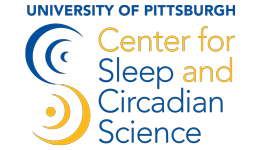Faculty
Daniel J. Buysse, MD
Distinguished Professor of Psychiatry, Medicine and Clinical and Translational Science
UPMC Endowed Chair in Sleep Medicine
University of Pittsburgh School of Medicine
3811 O’Hara St.
Pittsburgh, PA 15213
E: buyssedj@upmc.edu
T: (412) 246-6413
F: (412) 246-5300
Read More
Education:
- BA, University of Michigan (Ann Arbor, MI), 1981
- MD, University of Michigan (Ann Arbor, MI), 1983
- Postdoctoral Fellowship, University of Pittsburgh (Pittsburgh, PA), 1987-1989
Current Trainees:
- Accepting Trainees: Yes
Research Interests:
Dr. Buysse has over 25 years of experience in sleep medicine research. His main areas of focus include sleep assessment and patient-reported outcomes; evaluation and treatment of insomnia; and sleep in aging. He has also investigated sleep in mood disorders, and the interaction between sleep and circadian physiology. This research uses a variety of techniques such as self-report, actigraphy, home and laboratory-based polysomnography, laboratory-based circadian assessments, and functional imaging studies. Dr. Buysse has also conducted clinical trials of behavioral treatment for insomnia.
Dr. Buysse has a long-standing record of teaching and mentoring. He has mentored (or is currently mentoring) 21 post-doctoral fellows, 11 of these as primary research mentor. He has also mentored 12 undergraduate or medical students on research electives. Nine of Dr. Buysse’s previous post-docs have received K awards, eight have obtained NIH R-series funding, and four are still in training. Dr. Buysse is Program Director of an NHLBI-funded T32 program, “Translational Research Training in Sleep Medicine” (HL082610-08), and on the training faculty of two other T32 programs and the institutional KL2 program through the Clinical and Translational Science Institute. Of 8 alumni of the sleep medicine T32, 5 have received K awards. Dr. Buysse is the prior recipient of a K24 award.
Dr. Buysse has served in national and local leadership positions. He is Past President of the American Academy of Sleep Medicine, a former member of the Board of Directors of the Society of Behavioral Sleep Medicine, and Chair of the Sleep Research Network. He has served as Chair of the Biobehavioral Mechanisms of Stress and Health (MESH) study section at NIH, and has served on several NIH panels, including the Program Committee for the NIH State-of-the-Science Conference on the Manifestations and Management of Chronic Insomnia in Adults. Dr. Buysse is Deputy Editor of the journal SLEEP, and has served as Deputy Editor of Journal of Clinical Sleep Medicine, and Associate Editor of Behavioral Sleep Medicine. At the University of Pittsburgh, he served as Director of the Neuroscience Clinical and Translational Research Center, a component of our GCRC then CTSI, for nearly 20 years. He is Co-Chair of the Department of Psychiatry Research Review Committee, and Chair of the K Award Review Program.
Current Research Funding:
- UH2/UH3 HL125103 (Role: PI): Pragmatic Trial of Behavioral Interventions for Insomnia in Hypertensive Patients, 2014-2019
- T32 HL082610 (Role: PI): Translational Research Training in Sleep Medicine, 2007-2022.
- R01 AG047139 (Role: MPI): Sleep Circadian Rhythms, and Cardiometabolic Risk in Retired Shift Workers, 2015-2020.
- R01 GM113243 (Role: Co-I): Collaborative Research: A Statistical Framework for the Spectral Analysis of Nocturnal Electrophysiological Time Series, 2018-2021.
- R01 MH105513 (Role: Co-I): A Transdiagnostic Sleep and Circadian Treatment to Improve Community SMI Outcomes, 2014-2018.
- R01 HL122460 (Role: Co-I): Neighborhood Change: Impact on Sleep and Obesity-Related Health Disparities, 2015-2018.
- (Matthews) (Role: Co-I): Self-management via Health Kiosk by Community-Residing Older Adults, 2014-2019.
- R01 AG047139 (Role: Co-I): Sleep, Circadian Rhythms, and Cardiometabolic Risk in Retired Shift Workers, 2015-2020.
- U01 HL 128954 (Role: Co-I): Network Management Core (NEMO) for the Pulmonary Trials Cooperative (PTC), 2015-2020.
- R01 AG056331 (Role: Co-I): Sleep Health Profiles and Mortality Risk in Older Adults: A Multi-Cohort Application of Novel Statistical Methods, 2017-2020.
- UL1 TGR001857 (Role: Co-I): University of Pittsburgh Clinical and Translational Science Institute: Hub Research Capacity Component (PCI) , 2016-2021.
- R01 HL131587 (Role: Co-I): Improving Asthma Control Using Internet-based Cognitive-Behavioral Treatment for Insomnia, 2017-2021.
- R01 AA025626 (Role: Co-I): Proximal Prospective Associations between Circadian Alignment, Reward Function and Alcohol use in Adolescents, 2017-2022.
- (Patterson) (Role: Co-I): Real-Time Intervention to Reduce Fatigue Among Emergency Service Workers, 2018-2022.
- R01 MH118312 (Role: Co-I): Longitundinal Study of Sleep Duration, Reward and Cognitive Control Curcuits, and vulnerability for Depressed and Suicidal Ideation During Adolescence, 2018-2023.
Selected Publications:
- Levenson JC, Kay DB, Buysse DJ. The pathophysiology of insomnia. Chest 147(4): 1179-1192, 2015. PMCID: PMC4388122
- Kay DB, Buysse DJ, Germain A, Hall MH, Monk TH. Subjective-objective sleep discrepancy among older adults: Associations with insomnia diagnosis and insomnia treatment. Journal of Sleep Research 24(1):32-39, 2015. PMCID: PMC474029
- Buysse DJ. Sleep health: Can we define it? Does it matter? Sleep, 37(1):9-17, 2014. PMCID: PMC3902880
- Buysse DJ. Insomnia. JAMA-Journal of the American Medical Association, 309(7):706-716, 2013. PMCID: PMC3632369
- Yu L, Buysse DJ, Germain A, Moul DE, Stover A, Dodds NE, Johnston KL, Pilkonis PA. Development of short forms from PROMISTM Sleep Disturbance and Sleep-Related Impairment Item Banks. Behavioral Medicine, 10(1): 6-24, 2012. PMCID: PMC3261577
- Buysse DJ, Germain A, Hall M, Monk TH, Nofzinger EA. A neurobiological model of insomnia. Drug Discovery Today: Disease Models, 8(4): 129-137, 2011. PMCID: PMC3212043.
- Buysse DJ, Germain A, Moul DE, Franzen PL, Brar LK, Fletcher ME, Begley A, Houck PR, Mazumdar S, Reynolds CF, Monk TH. Efficacy of brief behavioral treatment for chronic insomnia in older adults. Archives of Internal Medicine, 171(10):887-895, 2011. PMCID: PMC3101289
- Buysse DJ, Yu L, Moul DE, Germain A, Stover A, Dodds NE, Johnston KL, Shablesky-Cade MA, Pilkonis PA. Development and validation of patient-reported outcome measures for sleep disturbance and sleep-related impairments. Sleep, 33(6):781-92, 2010. PMCID: PMC2880437
- Buysse DJ, Angst J, Gamma A, Ajdacic V, Eich D, Rossler W. Prevalence, course and comorbidity of insomnia and depression in young adults. Sleep, 31(4):473-80, 2008. PMCID: PMC2279748
- Nofzinger EA, Nissen C, Germain A, Moul D, Hall M, Price JC, Miewald JM, Buysse DJ. Regional cerebral metabolic correlates of WASO during sleep in insomnia. Journal of Clinical Sleep Medicine, 2(3):316-22, 2006.
- Nofzinger EA, Buysse DJ, Germain A, Price JC, Miewald JM, Kupfer DJ. Functional neuroimaging evidence of hyperarousal in insomnia. American Journal of Psychiatry, 161(11):2126-31, 2004.
- Buysse DJ, Reynolds CF, Monk TH, Berman SR, Kupfer DJ. The Pittsburgh Sleep Quality Index: A new instrument for psychiatric practice and research. Psychiatry Research, 28(2):193-213, 1989.
Complete list of published work: http://www.ncbi.nlm.nih.gov/myncbi/browse/collection/40800059/?sort=date&direction=ascending
Adam D Bramoweth, PhD, DBSM
Research Health Scientist & Staff Psychologist
VA Pittsburgh Healthcare System
Research Office Building (151RU)
University Drive C
Pittsburgh, PA 15240
T: 412-360-2806
Mazen El Ali, MD
Clinical Assistant Professor of Medicine
Associate Program Director, Sleep Medicine Fellowship
Director, Sleep Laboratory, UPMC Mercy
3459 Fifth Avenue
NW 628.8 Montefiore Hospital
Pittsburgh, PA 15213
E: elalim2@upmc.edu
T: 412-864-2089
F: 412-692-2888
Assistant: Cynthia Hatfield
Assistant Phone: 412-647-2461
Assistant Email: hatfieldca2@upmc.edu
Peter L. Franzen, PhD
Associate Professor
3811 O’Hara Street, Room E-1118
Pittsburgh, PA 15213
E: franzenpl@upmc.edu
T: 412-586-9038
F: 412-246-5300
Read More
Brant P. Hasler, PhD, DBSM
Associate Professor of Psychiatry, Psychology, and Clinical and Translational Science
Department of Psychiatry
3811 O’Hara Street, Room E-1127
Pittsburgh, PA 15213
E: haslerbp@upmc.edu
T: 412-246-6413
F: 412-246-5300
Read More
Current trainees:
Faculty on K-awards:
• Karen Jakubowski, PhD (secondary mentor)
Postdoctoral trainees:
• Nicholas Harrison, MD, PhD (primary mentor)
Graduate student trainees:
• Riya Mirchandaney (primary mentor)
Accepting trainees: Yes
Education:
• BA, Neuroscience & Behavior, Wesleyan University (Middletown, CT), 1994
• MS, Clinical Psychology, University of Arizona (Tucson, AZ), 2005
• PhD, Clinical Psychology, University of Arizona (Tucson, AZ), 2009
• Postdoctoral Fellowship, Translational Research Training in Sleep Medicine (T32), University of Pittsburgh (Pittsburgh, PA), 2009-2012
Research Interests:
Dr. Hasler’s research focuses on the role of sleep and circadian rhythms in regulating affect and motivation, particularly as relevant to affective disorders and substance use. In addition to his research program, Dr. Hasler is actively engaged in research mentorship and clinical supervision, as well as direct clinical practice, and is the Director of our accredited Behavioral Sleep Medicine training fellowship.
Current Research Funding:
• R01 AA025626 (Hasler): Proximal prospective associations between circadian alignment, reward function and alcohol use in adolescents, 2018-2024. Role: PI. NIH RePORTER link
• R01 DA044143 (Hasler): Delayed sleep phase and risk for adolescent substance use, 2019-2024. Role: PI. NIH RePORTER link
• R01 AA026249 (Hasler/Pedersen): Positive and negative reinforcement pathways underlying sleep and alcohol use associations, 2019-2024. Role: MPI. NIH RePORTER link
• P50 DA046346 (McClung): Center for Adolescent Reward, Rhythms, and Sleep (CARRS), 2020-2025. Role: Project Leader (Project 2: Circadian rhythms, sleep, and substance use risk during adolescence: observational, experimental, and longitudinal studies). https://reporter.nih.gov/project-details/10217071
• U01 AA021690 (Clark): National Consortium on Alcohol and NeuroDevelopment in Adolescence, 2017-2027. Role: Co-I. https://reporter.nih.gov/project-details/10677623
• R01 MH124828 (Soehner): Locomotor Activation and Mania Spectrum Risk: Circadian and Reward Mechanisms, 2021-2026. Role: Co-I. https://reporter.nih.gov/search/E-RKbqQ0T02vQbSZ-gelsA/project-details/10296782
• R01 MH126109 (Casement): Mechanisms of Depression and Anhedonia in Adolescents and Young Adults: Linking Sleep Duration and Timing to Reward- and Stress-Related Brain Function, 2021-2026. Role: Co-I. https://reporter.nih.gov/search/cqg3UE66xUyb1RAngOT1AA/project-details/10364517
• R01 AA029125 (Casement): Mechanisms of Risky Alcohol Use in Young Adults: Linking Sleep Duration and Timing to Reward- and Stress-Related Brain Function, 2022-2027. Role: Co-I. https://reporter.nih.gov/search/NPX8kOAWyUq-xH46EdWx-w/project-details/10364087
Selected Publications (*indicates work authored by trainees):
1. Hasler BP, Wallace ML, Graves JL, Witt R, Guo K, Buysse DJ, Siegle GJ, Clark DB. Pre-pandemic circadian phase predicts pandemic alcohol use among adolescents. Journal of Sleep Research. (in press)
2. *Hisler GC, Dickinson DL, Bruce SA, Hasler BP**. Preliminary evidence that misalignment between sleep and circadian timing alters risk-taking preferences. Journal of Sleep Research, 32, e13728, 2023. PMCID: PMC10023298
3. *Wescott DL, Wallace ML, Hasler BP, Klevens AM, Franzen PL, Hall MH, Roecklein KA. Sleep and circadian rhythm profiles in seasonal depression. Journal of Psychiatric Research, 156, 114–121, 2022. (PMCID: in process)
4. Burgess HL, Rizvydeen M, Kikyo F, Kebbeh N, Tan M, Roecklein KA, Hasler BP, King AC, Cao D. Sleep and circadian differences between light and heavy adult alcohol drinkers. Alcoholism: Clinical and Experimental Research, 46, 1181-1191, 2022. PMCID: PMC9357170
5. *Hisler GC, Pedersen SL, Hasler BP. The 24-hour rhythm in alcohol craving and individual differences in sleep characteristics and alcohol use frequency. Alcoholism: Clinical and Experimental Research, 46, 1084-1093, 2022. PMCID: PMC9246905 https://doi.org/10.1111/acer.14826
6. Hasler BP, Graves JL, Wallace ML, Claudatos S, Franzen PL, Nooner KB, Brown SA, Tapert SF, Baker, FC, Clark DB. Self-Reported Sleep and Circadian Characteristics Predict Alcohol and Cannabis Use: A Longitudinal Analysis of the National Consortium on Alcohol and Neurodevelopment in Adolescence Study. Alcoholism: Clinical and Experimental Research, 46, 848-860, 2022. PMCID: PMC9179040. DOI:10.1111/acer.14808
7. Hasler BP, Wallace ML, Graves JL, Molina BSG, Pedersen SL. Circadian preference is associated with multiple domains of trait and state level impulsivity. Chronobiology International, 39, 792-804, 2022. PMCID: PMC9117436
8. Hasler BP, Graves JL, Soehner AM, Wallace ML, Clark DB. Preliminary evidence that circadian alignment predicts neural response to monetary reward in late adolescent drinkers. Frontiers in Neuroscience, 16, 803349, 2022. PMCID: PMC8888521
9. Hasler BP, Soehner AM, Wallace ML, Logan RW, Ngari W, Forbes EE, Buysse DJ, Clark DB. Experimentally-imposed circadian misalignment alters the neural response to monetary rewards and response inhibition in healthy adolescents. Psychological Medicine, 52, 3939-3947. PMCID: PMC8935965
10. *Hisler GC, Rothenberger SD, Clark DB, Hasler BP. Is there a 24-hour rhythm in alcohol craving and does it vary by sleep/circadian timing? Chronobiology International, 38, 109-121, 2021. PMCID: PMC7855555
11. Duffy JF, Abbott SM, Burgess H, Crowley SJ, Emens JS, Epstein LJ, Gamble KL, Hasler BP, Kristo D, Malkani RG, Thomas SJ, Wyatt JK, Klerman EB. Workshop Report. Circadian Rhythm Sleep-Wake Disorders: Gaps and Opportunities. SLEEP, 44(5), zsaa281, 2021. PMCID: PMC8120340
12. *Evans MA, Hasler BP. Chapter 3 – CBT-I for patients with phase disorders or insomnia with circadian misalignment. In Cognitive Behavior Therapy for Insomnia. Cuddihy L, Garland S, Grander M, Nowakoski S (Eds.), San Diego, CA, Academic Press, 2021, p. 63-95.
13. Hasler BP, Pedersen SL. Sleep and circadian risk factors for alcohol problems: A brief overview and proposed mechanisms. Current Opinion in Psychology, 34, 57-62, 2020.
14. Hasler BP, White SJ, Wallace ML, Molina B, Pedersen SL. Preliminary evidence that real world sleep timing and duration are associated with laboratory-assessed alcohol response. Alcoholism: Clinical and Experimental Research, 43, 1575-1584, 2019. PMCID: PMC7493816
15. Hasler BP, Bruce S, Scharf D, Clark DB. Circadian misalignment and weekend alcohol use in late adolescent drinkers: Preliminary evidence. Chronobiology International, 36, 796-810, 2019. PMCID: PMC6499627
16. *Taylor BJ, Hasler BP. Chronotype and mental health: Recent advances. Current Psychiatry Reports, 20(8), 59-69, 2018.
17. Logan RW, Hasler BP, Forbes EE, Franzen PL, Torregrossa MM, Huang YH, Buysse DJ, Clark DB, McClung CA. Impact of sleep and circadian rhythms on addiction vulnerability in adolescents. Biological Psychiatry, 83, 987-996, 2018.
18. Hasler BP, Franzen PL, de Zambotti M, Prouty D, Brown SA, Tapert SF, Pfefferbaum A, Pohl KM, Sullivan EV, DeBellis MD, Nagel BJ, Colrain IM, Baker FC, Clark DB. Eveningness and later sleep timing are associated with greater risk for alcohol and marijuana involvement: Initial findings from the NCANDA study. Alcoholism: Clinical and Experimental Research, 41, 1154-1165, 2017. PMCID: PMC5488322
19. Hasler BP, Casement MD, Sitnick SL, Shaw DS, Forbes EE. Eveningness among late adolescent males predicts neural reactivity to reward and alcohol dependence two years later. Behavioural Brain Research, 327, 112-120, 2017. PMCID: PMC5483989
20. *Mike T, Sitnick SL, Shaw DS, Forbes EE, Hasler BP. The hazards of bad sleep: Sleep duration and quality as predictors of adolescent alcohol and cannabis use. Drug and Alcohol Dependence, 168, 335-339, 2016. PMCID: PMC5086262
21. Wong PM, Hasler BP, Kamarck TW, Muldoon MF, Manuck SB. Social jetlag, chronotype, and cardiometabolic risk. The Journal of Clinical Endocrinology & Metabolism, 100, 4612-4620, 2015. PMCID: PMC4667156
22. Miller MA, Rothenberger SD, Hasler BP, Donofry SD, Wong PM, Manuck SB, Kamarck KA, Roecklein KA. Chronotype predicts positive affect rhythms measured by ecological momentary assessment. Chronobiology International, 32, 376-384, 2015. PMCID: PMC4458846
23. Gunn HE, Buysse DJ, Hasler BP, Begley A, Troxel WM. Sleep concordance in couples is associated with relationship characteristics. Sleep, 38, 933-939, 2015. PMCID: PMC4434560
24. Hasler BP, Forbes EE, Franzen PL. Time-of-day differences and short-term stability of the neural response to monetary reward: A pilot study. Psychiatry Research: Neuroimaging, 224, 22-27. PMCID: PMC4157087
25. Hasler BP, Martin CS, Wood DS, Rosario B, Clark DB. A longitudinal study of insomnia and other sleep complaints in adolescents with and without alcohol use disorders. Alcoholism: Clinical and Experimental Research, 38, 2225-2233, 2014. PMCID: PMC4146702
26. Hasler BP, Sitnick SL, Shaw DS, Forbes EE. An altered neural response to reward may contribute to alcohol problems among late adolescents with an evening chronotype. Psychiatry Research: Neuroimaging, 214, 357-364, 2013. PMCID: PMC3852171
27. Hasler BP, Clark DB. Circadian misalignment, reward functioning, and adolescent alcohol involvement. Alcoholism: Clinical and Experimental Research. 37(4), 558-565, 2013. PMCID: PMC3843484
28. Hasler BP, Dahl RE, Holm SM, Jakubcak JL, Ryan ND, Silk JS, Phillips ML, Forbes EE. Weekend-weekday advances in sleep timing are associated with altered reward-related brain function in healthy adolescents. Biological Psychology, 91, 334-341, 2012. PMCID: PMC3490026
29. Hasler BP, Germain A, Nofzinger EA, Kupfer DJ, Krafty RT, Rothenberger SD, James JA, Bi W, Buysse DJ. Chronotype and diurnal patterns of positive affect and affective neural circuitry in primary insomnia. Journal of Sleep Research, 21, 515-526, 2012. PMCID: PMC3371278
30. Hasler BP, Smith LJ, Cousins JC, Bootzin RR. Circadian rhythms, sleep, and substance abuse. Sleep Medicine Reviews, 16(1), 67-81, 2012. PMCID: PMC3177010
31. Hasler BP, Troxel WM. Couples’ nighttime sleep efficiency and concordance: Evidence for bidirectional associations with daytime relationship functioning. Psychosomatic Medicine, 72(8), 794-801, 2010. PMCID: PMC2950886.
32. Hasler BP, Buysse DJ, Kupfer DJ, Germain A. Phase relationships between core body temperature, melatonin, and sleep are associated with depression severity: Further evidence for circadian misalignment in non-seasonal depression. Psychiatry Research, 178(1), 205-207, 2010. PMCID: PMC2914120.
33. Hasler BP, Allen JJB, Sbarra DA, Bootzin RR, Bernert RA. Morningness-eveningness and depression: Preliminary evidence for the role of BAS and positive affect. Psychiatry Research, 176, 166-173, 2010. PMCID: PMC2844473.
34. Hasler BP, Mehl MR, Bootzin RR, Vazire S. Preliminary evidence of diurnal rhythms in everyday behaviors associated with positive affect. Journal of Research in Personality, 42(6), 1537-1546, 2008.
35. Hasler BP, Bootzin RR, Cousins JC, Fridel K, Wenk GL. Circadian phase in sleep-disturbed adolescents with a history of substance abuse. Behavioral Sleep Medicine, 6(1), 55-73, 2008.
Complete List of Published Work in MyBibliography: https://www.ncbi.nlm.nih.gov/sites/myncbi/brant.hasler.1/bibliography/43827584/public/?sort=date&direction=descending
Martica H. Hall, PhD
Professor Department of Psychiatry
3811 O’Hara Street
Room E-1131
Pittsburgh, PA 15213
hallmh@upmc.edu
T: 412-246-6431
F: 412-246-5300
Read More
Current Trainees:
- Katherine Duggan, PhD, Jonna Morris, PhD
- Graduate Student: Marissa Bowman
- Accepting Trainees: Yes
Education:
- MS, Medical Psychology, Uniformed Services University of the Health Sciences (Bethesda, MD), 1993
- PhD, Biopsychology, University of Pittsburgh (Pittsburgh, PA), 1995
Research Interests:
Dr. Hall’s research program bridges the traditionally independent fields of behavioral medicine and sleep medicine. Her research focuses on the pathways through which psychological and social factors affect sleep and their downstream consequences to health and functioning, with an emphasis on diseases of aging. She has evaluated these relationships in diverse populations across the lifespan, focusing mainly on mid- to adults at increased risk for cardiometabolic disease including caregivers, women during the menopausal transition, individuals with sleep and psychiatric disorders, and adults affected by racial/social disparities. She has given national and international workshops on the assessment of sleep, including self-report indices of sleep duration in studies of sleep health. Dr. Hall has also developed and refined innovative protocols for the assessment of ecologically valid and reliable measures of sleep health including ambulatory polysomnography, wrist actigraphy, and heart rate variability during sleep.
Committed to the future of sleep and circadian science, Dr. Hall is a dedicated mentor. She works with trainees across the educational continuum from undergraduates, to graduate and medical students, postdoctoral fellows, and junior faculty. Dr. Hall directs the training seminar for the “Translational Research Training in Sleep Medicine” training program (T32 HL082610), and serves as training faculty on four other NIH-funded T32 programs. In recognition of her dedication to training, Dr. Hall is the recipient of the Sleep Research Society’s 2019 Mary Carskadon Outstanding Educator Award.
Research Funding:
- R01 AG047139 (Role: MPI). Sleep, Circadian Rhythms, and Cardiometabolic Risk in Retired Shift Workers, 2015-2020
- R01 HL126770 (Role: Site PI). Sleep, Stress, and Arterial Stiffness. 2016-2020
- R01 HL136205 (Role: Site PI). Sleep Disturbance as a Mechanism for Ischemic Heart Disease in PTSD. 2017-2021
- R01 AG056331 (Role: Co-I) Sleep Health Profiles and Mortality Risk in Older Adults: A Multi-Cohort Application of Novel Statistical Methods. 2017-2020
- R01 HL142064 (Role: Site PI). Sleep and Circadian Mechanisms Contributing to Disparity in Prevalence of Hypertension Between Black and White Americans. 2018-2022
- R01 GM113243 (Role: Co-I). A Statistical Framework for the Spectral Analysis of High Dimensional Physiological Time Series Signal, 2018-2021. NIH RePORTER Link
- U01 AG012546 (Role: Co-I). Study of Women’s Health Across the Nation, 2014-2019. NIH RePORTER Link
Refereed Publications (* denotes work conducted by mentored trainees):
- Zakowski SG, Hall M. , Baum A. Stress, stress management, and the immune system. Applied and preventive psychology: Current Scientific Perspectives, 1:1-13, 1992.
- Baum A, Cohen L, Hall M. Control and intrusive memories as possible determinants of chronic stress. Psychosomatic Medicine,55:274-86, 1993.
- Patterson SM, Zakowski SG, Hall M, Cohen L, Wollman K, Baum A. Psychological stress and platelet activation: Differences in platelet reactivity in healthy men during active and passive stressors. Health Psychology, 13:34-8, 1994.
- Zakowski SG, Cohen L, Hall M, Wollman K, Baum A. Differential effects of active and passive laboratory stressors on immune function in a group of healthy men. International Journal of Behavioral Medicine, 1:163-84, 1994.
- Hall M, Baum A. Intrusive thoughts as determinants of distress in parents of children with cancer. Journal of Applied Social Psychology, 25:1215-30, 1995.
- McCann UD, Thorne D, Hall M, Avery W, Sing H, Thomas M, Belenky G. The effects of L-dihydroxyphenylalanine on alertness and mood in alpha-methyl-para-tyrosine-treated normal volunteers: Further evidence for the role of catecholamines in arousal and anxiety. Neuropsychopharmacology, 13:41-52, 1995.
- Reynolds CF, Frank E, Perel JM, Mazumdar S, Dew MA, Begley A, Houck PR, Hall M, Mulsant B, Shear MK, Miller MD, Cornes C, Kupfer DJ. High relapse rates after discontinuation of adjunctive mediation in elderly patients with recurrent major depression. American Journal of Psychiatry, 153:1418-22, 1996.
- Dew MA, Reynolds CF, Houck P, Hall M, Buysse DJ, Frank E, Kupfer DJ. Temporal profiles of the course of depression during treatment: Predictors of pathways toward recovery in the elderly. Archives of General Psychiatry, 54:1016-24, 1997.
- Hall M, Buysse DJ, Dew MA, Prigerson HG, Kupfer DJ, Reynolds CF. Intrusive thoughts and avoidance behaviors are associated with sleep disturbances in bereavement-related depression. Depression and Anxiety, 6:106-12, 1997.
- McDermott OD, Prigerson HG, Reynolds CF, Houck PR, Dew MA, Hall M, Mazumdar S, Buysse DJ, Hoch CC, Kupfer DJ. Sleep in the wake of complicated grief: A preliminary report. Biological Psychiatry, 41:710-6, 1997.
- Pasternak RE, Prigerson H, Hall M, Miller MD, Fasiczka A, Mazumdar S, Reynolds CF. The post-treatment illness course of depression in bereaved elders: High relapse/recurrence rates. American Journal of Geriatric Psychiatry, 5:54-8, 1997.
- Reynolds CF, Buysse DJ, Dew MA, Hoch CC, Hall M, Brunner DP, Begley A, Houck PR, Mazumdar S, Perel JM, Kupfer DJ. Maintenance nortriptyline effects on homeostatic control of sleep in elders with recurrent major depression: Double-blind, placebo- and plasma-level controlled evaluation. Biological Psychiatry, 42:560-7, 1997.
- Buysse DJ, Hall M, Tu XM, Land S, Houck PR, Cherry CR, Kupfer DJ, Frank E. Latent structure of EEG sleep variables in depressed and control subjects: Descriptions and clinical correlates. Psychiatry Research, 79:105-22, 1998.
- Hall M, Baum A, Buysse DJ, Prigerson HG, Kupfer DJ, Reynolds CF. Sleep as a mediator of the stress-immune relationship. Psychosomatic Medicine, 60:48-51, 1998.
- Hall M, Bromberger JT, Matthews KA: Socioeconomic status as a correlate of sleep in African-American and Caucasian women. Socioeconomic Status and Health in Industrial Nations: Social, Psychological, and Biological Pathways. Adler NE, Marmot M, McEwen BS, Stewart J (Eds.), Annals of the New York Academy of Sciences, 427-430, 1999.
- Hall M, Buysse DJ, Nowell PD, Nofzinger EA, Houck P, Reynolds CF, Kupfer DJ. Symptoms of stress and depression as correlates of sleep in primary insomnia. Psychosomatic Medicine, 62:227-30, 2000.
- Buysse DJ, Hall M, Begley A, Cherry CR, Houck PR, Land S, Ombao H, Kupfer DJ, Frank E. Sleep and treatment response in depression: New findings using power spectral analysis. Psychiatry Research, 103:51-67, 2001.
- Zakowski SG, Hall M, Klein LC, Baum A. Appraised control, coping and stress in a community sample: A test of the goodness-of-fit hypothesis. Annals of Behavioral Medicine, 23:158-65, 2001.
- Hoch CC, Reynolds CF, Buysse DJ, Monk TH, Nowell PD, Begley A, Hall M, Dew MA. Protecting sleep quality in later life: A pilot study of bed restriction and sleep hygiene. Journal of Gerontology Psychological Sciences, 56:52-9, 2001.
- Reynolds CF, Buysse DJ, Nofzinger EA, Hall M, Dew MA, Monk TH. Age Wise: Aging well by sleeping well. Journal of the American Geriatrics Society, 49:491, 2001.
- de Moor C, Sterner J, Hall M, Warneke C, Gilani Z, Amato R, Cohen L. A pilot study of the effects of expressive writing on psychological and behavioral adjustment in patients enrolled in a phase II trial of vaccine therapy for metastatic renal cell carcinoma. Health Psychology, 21: 615-9, 2002.
- Martire L, Hall M. Dementia caregiving: Recent research on negative health effects and the efficacy of caregiver interventions. CNS Spectrums, 7:791-6, 2002.
- Nofzinger EA, Buysse DJ, Miewald JM, Meltzer CC, Price JC, Sembrat RC, Ombao H, Reynolds CF, Monk TH, Hall M, Kupfer DJ, Moore RY. Human regional cerebral glucose metabolism during NREM sleep in relation to waking. Brain, 125:1105-15, 2002.
- Dew MA, Hoch CC, Buysse DJ, Monk T, Begley AE, Houck PR, Hall M, Kupfer DJ, Reynolds CF. Healthy older adults sleep predicts all-cause mortality at 4 to 19 years of follow-up. Psychosomatic Medicine, 65:63-74, 2003.
- *Germain A, Buysse DJ, Ombao H, Kupfer DJ, Hall M. Psychophysiological reactivity and coping styles influence the effects of acute stress exposure on REM sleep. Psychosomatic Medicine, 65:857-64, 2003.
- Redwine L, Dang J, Hall M, Irwin M. Disordered sleep, nocturnal cytokines and immunity in alcoholics. Psychosomatic Medicine, 65:75-85, 2003.
- Myaskovsky L, Dew MA, Switzer GE, Hall M, Kormos RL, Goycoolea MA, DiMartini AF, Manzetti JD, McCurry KR. Avoidant coping with health problems is related to poorer quality of life among lung transplant candidates. Progress in Transplantation, 13:183-92, 2003.
- Hall M, Vasko R, Buysse DJ, Ombao H, Chen Q, Cashmere JD, Kupfer DJ, Thayer JF. Acute stress affects heart rate variability during sleep. Psychosomatic Medicine, 66:56-62, 2004.
- Moul DE, Hall M, Pilkonis PA, Buysse DJ. Self-report measures of insomnia in adults: Rationales, choices, and needs. Sleep Medicine Reviews, 8:177-98, 2004.
- Germain A, Hall M, Krakow B, Shear MK, Buysse DJ. A brief sleep scale for posttraumatic stress disorder: Pittsburgh Sleep Quality Index addendum for PTSD. Journal of Anxiety Disorders, 19:233-44, 2004.
- Levitt H, Wood A, Moul DE, Hall M, Germain A, Kupfer DJ, Buysse DJ. A pilot study of daytime alertness and mood in insomnia patients using ecological momentary assessment. Behavioral Sleep Medicine, 2:113-31, 2004.
- Berger AM, Parker KP, Young-McCaughan S, Mallory GA, Barsevick AM, Beck SL, Carpenter JS, Carter PA, Farr LA, Hinds PS, Lee KA, Miaskowski C, Mock V, Payne JK, Hall M. Sleep/wake disturbances in people with cancer and their caregivers: State of the science. Oncology Nursing Forum, 32:E98-126, 2005.
- Thayer JF, Hall M, Sollers JJ, Fischer JE. Alcohol use, urinary cortisol, and heart rate variability in apparently healthy men: Evidence for impaired inhibitory control of the HPA axis in heavy drinkers. International Journal of Psychophysiology, 59:244-50, 2006.
- Germain A, Hall M, Shear MK, Nofzinger EA, Buysse DJ. Ecological study of sleep disruption in PTSD: A pilot study. Annals of the New York Academy of Sciences, 1071:438-41, 2006.
- Monk TH, Buysse DJ, Hall M, Nofzinger EA, Thompson W, Mazumdar SA, Reynolds CF. Age-related differences in the lifestyle regularity of seniors experiencing bereavement, care-giving, insomnia and advancement into old-old age. Chronobiology International, 23(4):831-41, 2006.
- Monk TH, Thompson WK, Buysse DJ, Hall M, Nofzinger EA, Reynolds CF. Sleep in healthy seniors: A diary study of the relation between bedtime and the amount sleep obtained. Journal of Sleep Research, 15:256-60, 2006.
- Nofzinger EA, Nissen C, Germain A, Moul D, Hall M, Price JC, Miewald JM, Buysse DJ. Regional cerebral metabolic correlates of WASO during NREM sleep in insomnia. Journal of Clinical Sleep Medicine, 2(3):316–22, 2006.
- Reynolds CF, Buysse DJ, Miller MD, Pollock BG, Hall M, Mazumdar S. Paroxetine treatment of primary insomnia in older adults. American Journal of Geriatric Psychiatry, 14(9):803-7, 2006.
- Germain A, Hall M, Shear MK, Nofzinger EA, Buysse DJ. Sleep disruption in PTSD: A pilot study with home-based polysomnography. Sleep and Biological Rhythms, 4: 286-89, 2006.
- Germain A, Shear MK, Hall M, Buysse DJ. Effects of a brief behavioral treatment for PTSD-related sleep disturbances: A pilot study. Behavior Research and Therapy, 45: 627-32, 2007.
- Jennings JR, Muldoon M, Hall M, Buysse DJ, Manuck SB. Self-reported sleep quality is associated with the metabolic syndrome. Sleep, 30(2):219-23, 2007.
- Hall M, Thayer JF, Germain A, Moul D, Vasko R, Puhl M, Miewald J, Buysse DJ. Psychological stress is associated with heightened physiological arousal during NREM sleep in primary insomnia. Behavioral Sleep Medicine, 5(3):178-93, 2007.
- *Okun ML, Hall M, Coussons-Read ME. Sleep disturbances increase IL-6 production during pregnancy: Implications for pregnancy complications. Reproductive Sciences, 14(6):560-7, 2007.
- Buysse DJ, Thompson W, Scott J, Franzen PL, Germain A, Hall M, Moul DE, Nofzinger EA, Kupfer DJ. Daytime symptoms in primary insomnia: A prospective analysis using ecological momentary assessment. Sleep Medicine, 8:198-208, 2007. PMCID: PMC1899354
- *Troxel WM, Robles T, Hall M, Buysse DJ. Marital quality and the marital bed: Examining the covariation between relationship quality and sleep. Sleep Medicine Reviews, 11(5):389-404, 2007. PMCID: PMC2644899
- *Troxel WM, Cyranowski JM, Hall M, Frank E, Buysse DJ. Attachment anxiety, relationship context, and sleep in women with recurrent major depression. Psychosomatic Medicine, 69: 692-9, 2007. PMCID: PMC2723846
- *Goldman SE, Stone KL, Ancoli-Israel S, Blackwell MA, Ewing SK, Boudreau R, Cauley JA, Hall M, Matthews KA, Newman AB. Poor sleep is associated with poorer physical performance and greater functional limitations in older women. Sleep, 30(10):1317-24, 2007. PMCID: PMC2266278
- *Ranpuria R, Hall M, Chan CT, Unruh M. Heart rate variability (HRV) in kidney failure: measurement and consequences of reduced HRV. Nephrology Dialysis Transplantation, 23(2):444-9, 2008.
- Hall M, Buysse DJ, Nofzinger EA, Reynolds CF, Monk TH. Financial strain is a significant correlate of sleep continuity disturbances in late-life. Biological Psychology, 77: 217-22, 2008. PMCID: PMC2267650
- Hall M, Muldoon MF, Jennings JR, Buysse DJ, Flory JD, Manuck SB. Self-reported sleep duration is associated with the metabolic syndrome in mid-life adults. Sleep, 31(5):635-43, 2008. PMCID: PMC2398755
- *Mezick EJ, Matthews KA, Hall M, Strollo PJ, Buysse DJ, Kamarck TW, Owens JF, Reis SE. Influence of race and socioeconomic status on sleep: Pittsburgh SleepSCORE project. Psychosomatic Medicine, 70:410-6, 2008. PMCID: PMC2887747
- *Goldman SE, Hall M, Boudreau R, Matthews KA, Cauley JA, Ancoli-Israel S, Stone KL, Rubin SM, Satterfield S, Simonsick EM, Newman AB. Association between nighttime sleep and napping in older adults. Sleep, 31(5):733-40, 2008. PMCID: PMC2398743
- Kravitz HM, Zhao X, Bromberger JT, Gold EB, Hall M, Matthews KA, Sowers, MF. Sleep disturbance during the menopausal transition in a multi-ethnic community sample of women. Sleep, 31(7):979-90, 2008. PMCID: PMC2491500
- Matthews KA, Kamarck TW, Hall M, Strollo PJ, Owens JF, Buysse DJ, Lee L, Reis SE. Blood pressure dipping and sleep disturbance in african american and caucasian men and women. American Journal of Hypertension, 21(7):826-31, 2008. PMCID: PMC2890257
- Sowers MF, Zheng H, Kravitz HM, Matthews KA, Bromberger JT, Gold EB, Owens J, Consens F, Hall M. Sex steroid hormone profiles are related to sleep measures from polysomnography and the Pittsburgh Sleep Quality Index. Sleep, 31(10):1339-49, 2008. PMCID: PMC2572739
- *Goldman SE, Ancoli-Israel S, Boudreau R, Cauley JA, Hall M, Stone KL, Rubin SM, Satterfield S, Simonsick EM, Newman AB. Sleep problems and associated daytime fatigue in community-dwelling older individuals. Journal of Gerontology: Medical Sciences, 63A(10):1069-75, 2008.
- Buysse DJ, Hall M, Strollo PJ, Kamarck TW, Owens J, Lee L, Reis S, Matthews, KA. Relationships between the Pittsburgh Sleep Quality Index (PSQI), Epworth Sleepiness Scale (ESS), and clinical/polysomnographic measures in a community sample. Journal of Clinical Sleep Medicine, 4(6):563-71, 2008. PMCID: PMC2603534
- Buysse DJ, Germain A, Hall M, Moul DE, Nofzinger EA, Begley A, Ehlers C, Thompson W, Kupfer DJ. EEG spectral analysis in primary insomnia: NREM period effects and sex differences. Sleep, 31(12):1673-82, 2008. PMCID: PMC2603490
- Hall M, Matthews K, Kravitz H, Gold E, Buysse DJ, Bromberger J, Owens J, Sowers MF. Race and financial strain are independent correlates of sleep in mid-life women: The SWAN Sleep Study. Sleep, 32(1):73-82, 2009. PMCID: PMC2625326
- *Troxel WM, Buysse DJ, Hall M, and Matthews KA. Marital happiness and sleep disturbances in a multi-ethnic sample of middle-aged women. Behavioral Sleep Medicine, 7:2-29, 2009. PMCID: PMC2654623
- *Okun ML, Hanusa B, Hall M, Wisner K. Sleep complaints in late pregnancy and the recurrence of postpartum depression. Behavioral Sleep Medicine, 7:106-17, 2009. PMCID: PMC2909658
- *Okun ML, Kravitz HM, Sowers MF, Moul DE, Buysse DJ, Hall M. Psychometric evaluation of the insomnia symptom questionnaire: A self-report measure to identify chronic insomnia. Journal of Clinical Sleep Medicine, 5:41-51, 2009. PMCID: PMC2637165
- *Okun ML, Coussons-Read ME, Hall M. Disturbed sleep is associated with increased C-reactive protein in young women. Brain, Behavior, and Immunity, 23:351-4, 2009. PMCID: PMC2909667
- *Okun ML, Roberts JM, Marsland AL, Hall M. How disturbed sleep may be a risk factor for adverse pregnancy outcomes. A Hypothesis. Ob-Gyn Survey, 64:273-80, 2009. PMCID: PMC2880322
- *Mezick EJ, Matthews KA, Hall M, Kamarck TW, Buysse DJ, Owens JF, Reis SE. Intra-individual variability in sleep duration and fragmentation: Associations with stress. Psychoneuroendocrinology, 34:1346-54, 2009. PMCID: 2743778
- *Prather AA, Marsland AL, Hall M, Neumann SA, Muldoon MF, Manuck SB. Normative variation in self-reported sleep quality and sleep debt is associated with stimulated pro-inflammatory cytokine production. Biological Psychology, 82(1):12-7, 2009. PMCID: PMC2727147
- Reynolds CF, Serody L, Okun ML, Hall M, Houck PR, Patrick S, Maurer J, Bensasi S, Mazumdar S, Bell B, Nebes RD, Miller MD, Dew MA, and Nofzinger EA. Protecting sleep, promoting health in later life: A randomized clinical trial. Psychosomatic Medicine, 72(2):178-86, 2010. PMCID: PMC2846078
- Troxel WM, Buysse DJ, Hall M, Kamarck T, Owens JF, Strollo PJ, Reis SE, Matthews KA. Social integration, social contacts, and nocturnal blood pressure in African Americans and Caucasians. Journal of Hypertension, 28: 265-71, 2010. PMCID: PMC2864490
- Vahtera J, Westerlund H, Hall M, Sjˆsten N, Kivim‰ki M, Salo P, Ferrie JE, Jokela M, Pentti J, Singh-Manoux A, Goldberg M, Zins M. Effect of retirement on sleep disturbances: The GAZEL prospective cohort study. Sleep, 31(11):1459-66, 2009. PMCID: PMC2768952
- Nabi H, Hall M, Koskenvuo M, Singh-Manoux A, Oksanen T, Suominen S, Kivim‰ki M, Vahtera J. Psychological and somatic symptoms of anxiety and risk of coronary heart disease: The HeSSup Prospective Cohort Study. Biological Psychiatry, 67:378-85, 2010. PMCID: PMC2963017
- *Okun ML, Krafty RT, Buysse DJ, Monk TH, Reynolds CF, Begley A, Hall M. What constitutes too long of a delay? Determining the cortisol awakening response (CAR) using self-report and PSG-assessed wake time. Psychoneuroendocrinology, 35(3):460-8, 2010. PMCID: PMC2823961
- *Mezick EJ, Matthews KA, Hall M, Kamarck TW, Strollo PJ, Buysse DJ, Owens JF, Reis SE. Low life purpose and high hostility are related to an attenuated decline in nocturnal blood pressure. Health Psychology, 29(2):196-204, 2010. PMCID: PMC2841295
- Troxel WM, Buysse DJ, Matthews KA, Kravitz HM, Bromberger JT, Sowers MF, Hall M. Marital/cohabitation status and history in relation to sleep in midlife women. Sleep, 33(7):862-3, 2010. PMCID: PMC199762
- Owens JF, Buysse DJ, Hall M, Kamarck TW, Lee L, Strollo PJ, Reis SE, Matthews KA. Napping, nighttime sleep, and cardiovascular risk factor in mid-life adults. Journal of Clinical Sleep Medicine, 6(4):330-5, 2010. PMCID: PMC2919622
- Matthews KA, Zheng H, Kravitz HM, Sowers M, Bromberger JT, Buysse DJ, Owens JF, Sanders M, and Hall M: Are inflammatory and coagulation biomarkers related to sleep characteristics in mid-life women? Study of Women’s Health across the Nation sleep study. Sleep, 33(12):1649-1655, 2010. PMCID: PMC2982735
- Nabi H, Shipley MJ, Vahtera J, Hall M, Korkeila J, Marmot MG, Kivimaki M, Singh-Manoux A: Effects of depressive symptoms and coronary heart disease and their interactive associations on mortality in middle-aged adults: the Whitehall II cohort study. Heart, 96(20):1645-1650, 2010. PMCID: PMC3151258
- *Roumelioti ME, Ranpuria R, Hall M, Hotchkiss JR, Chan CT, Unruh ML, Argyropoulos C. Abnormal nocturnal heart rate variability response among chronic kidney disease and dialysis patients during wakefulness and sleep. Nephrology Dialysis Transplantation, 25(11):3733-3741, 2010. PMCID: PMC2980993
- Salo P, Oksanen T, Sivertsen B, Hall M, Pentti J, Virtanen M, Vahtera J, Kivimaki M. Sleep disturbances as a predictor of cause-specific work disability and delayed return to work. Sleep, 33(10):1323-1331, 2010. PMCID: PMC2941418
- Troxel WM, Buysse DJ, Matthews KA, Kip KE, Strollo PJ, Hall M, Drumheller O, Reis SE. Sleep symptoms predict the development of the metabolic syndrome. Sleep, 33(12):1633-1640, 2010. PMCID: PMC2982733
- Troxel WM, Buysse DJ, Monk TH, Begley A, Hall M. Does social support differentially affect sleep in older adults with versus without insomnia? Journal of Psychosomatic Research, 69(5):459-466, 2010. PMCID: PMC2958100
- *Mezick EJ, Hall M, Matthews KA. Are sleep and depression independent or overlapping risk factors for cardiometabolic disease? Sleep Medicine Reviews, 15(1):51-63, 2011. PMCID: PMC2928398
- Okun ML, Reynolds CF, Buysse DJ, Monk TH, Mazumdar S, Begley A, Hall M. Sleep variability, health-related practices and inflammatory markers in a community dwelling sample of older adults. Psychosomatic Medicine, 73(2): 142-50, 2011. PMCID: PMC3106426
- Matthews KA, Strollo PJ, Hall M, Mezick EJ, Kamarck TW, Owens JF, Buysse DJ, Reis SE. Associations of Framingham risk score profile and coronary artery calcification with sleep characteristics in middle-aged men and women: Pittsburgh SleepSCORE study. Sleep, 34(6):711-716, 2011. PMCID: PMC3099492
- Kravitz HM, Avery E, Sowers MF, Bromberger JT, Owens JF, Matthews KA, Hall M, Zheng H, Gold EB, Buysse DJ. Relationships between menopausal and mood symptoms and EEG sleep measures in a multi-ethnic sample of middle-aged women: The SWAN Sleep Study. Sleep, 34(9): 1221-1232, 2011. PMCID: PMC3157664
- Krafty RT, Hall M, Guo W. Functional mixed effects spectral analysis. Biometrika, 98(3): 583-98, 2011.
- Franzen PL, Gianaros PJ, Marsland AL, Hall M, Siegle GJ, Dahl RE, Buysse DJ: Cardiovascular reactivity to acute psychological stress following sleep deprivation. Psychosomatic Medicine, 73:679-682, 2011. PMCID: PMC3614084
- *Beatty DL, Hall M, Kamarck TA, Buysse DJ, Owens FJ, Reis SE, Mezick EJ, Strollo PJ, Matthews KA. Unfair treatment is associated with poor sleep in African American and Caucasian adults: Pittsburgh SleepSCORE Project. Health Psychology, 30(3): 351-9, 2011. PMCID: PMC3131074
- Campbell I, Bromberger J, Buysse D, Hall M, Hardin K, Kravitz HM, Matthews K, Rasor M, Utts J, Gold E. Evaluation of the association of menopausal status with delta and beta EEG activity during sleep. Sleep 34(11):1561-1568, 2011. PMCID: PMC3198211
- Zheng H, Sowers MF, Buysse DJ, Consens F, Kravitz HM, Matthews KA, Owens JF, Gold EB, Hall M. Sources of variability in epidemiological studies of sleep using repeated nights of in-home polysomnography: SWAN Sleep Study. Journal of Clinical Sleep Medicine 8(1): 86-97, 2012. PMCID: PMC3266336
- *Mezick EJ, Hall M, Matthews KA. Sleep duration and ambulatory blood pressure in black and white adolescents. Hypertension 59: 747-52, 2012. PMCID: PMC3314491
- Salo P, Vahtera J, Hall M, Rod NH, Virtanen M, Pentti J, Sjˆsten N, Oksanen T, Kivim‰ki M. Using repeated measures of sleep disturbances to predict future diagnosis-specific work disability: A cohort study. Sleep, 35(4):559-69, 2012. PMCID: PMC3296798
- Hall M, Okun ML, Sowers MF, Matthews KA, Kravitz HM, Hardin K, Buysse DJ, Bromberger JT, Owens JF, Karpov I, Sanders MH. Sleep is associated with the metabolic syndrome in a multi-ethnic cohort of mid-life women: The SWAN Sleep Study. Sleep,35(6):783-79, 2012. PMCID: PMC3353036
- *Prather AA, Hall M, Fury JM, Ross DC, Muldoon MF, Cohen S, Marsland A. Sleep and antibody response to Hepatitis B vaccination. Sleep, 35(8):1063-9, 2012. PMCID: PMC3397812
- *Israel B, Buysse DJ, Krafty RT, Begley A, Miewald J, Hall M. Short-term stability of sleep and heart rate variability in good sleepers and patients with insomnia: For some measures, one night is enough. Sleep, 35(9):1285-91, 2012. PMCID: PMC3413806
- *Kline CE, Sui X, Hall M, Youngstedt SD, Blair SN, Earnest CP, Church TS. Dose-response effects of exercise training on the subjective sleep quality of postmenopausal women: exploratory analyses of a randomised controlled trial. BMJ Open, 2(4), 2012. PMCID: PMC3400065
- Matthews KA, Dahl RE, Owens JF, Lee L, Hall M. Sleep duration and insulin resistance in healthy black and white adolescents. Sleep, 35(10):1353-58, 2012. PMCID: PMC23024433
- Boudebesse C, Leboyer M, Begley A, Wood A, Miewald J, Hall M, Frank E, Kupfer DJ, Germain A. Comparison of five actigraphy scoring methods in bipolar disorder: An objective/subjective spectrum of processing. Behavioral Sleep Medicine, 11:1-8, 2013. PMCID: PMC3869094
- Appelhans BM, Janssen I, Cursio JF, Matthews KA, Hall M, Gold EB, Burns JW, Kravitz HM. Sleep duration and weight changes in midlife women: The SWAN Sleep Study. Obesity, 21(1):77-84, 2013. PMCID: PMC3484178
- Krafty RT, Xiong S, Stoffer DS, Buysse DJ, Hall M. Enveloping spectral surfaces: covariate dependent spectral analysis of categorical time series. Journal of Time Series Analysis, 33(5):797-806, 2012. PMCID: PMC4002131
- *Irish LA, Dougall AL, Delahanty DL, Hall M. The impact of sleep complaints on physical health and immune outcomes in rescue workers: A 1-year prospective study. Psychosomatic Medicine, 75(2):196-201, 2013. PMCID: PMC3902641.
- *Levenson JC, Troxel WM, Begley A, Hall M, Germain A, Monk TH, Buysse DJ. A quantitative approach to distinguishing older adults with insomnia from good sleeper controls. Journal of Clinical Sleep Medicine, 9(2):125-131, 2013. PMCID: PMC3544379
- Insana SP, Hall M, Buysse DJ, Germain A. Validation of the Pittsburgh Sleep Quality Index Addendum for Posttraumatic Stress Disorder (PSQI-A) in U.S. Male Military Veterans. Journal of Traumatic Stress, 26(2):192-200, 2013. PMCID: PMC3746481
- Lewis TT, Troxel WM, Kravitz HM, Bromberger JT, Matthews KA, Hall M. Chronic exposure to everyday discrimination and sleep in a multi-ethnic sample of middle-aged women. Health Psychology, 32(7):810-19, 2013. PMCID: PMC3654016
- *Kline CE, Irish LA, Krafty RT, Sternfeld B, Kravitz HM, Buysse DJ, Bromberger JT, Dugan SA, Hall M. Consistently high sports/exercise activity is associated with better sleep quality, continuity and depth in midlife women: The SWAN Sleep Study. Sleep, 36(9):1279-88, 2013. PMCID: PMC3738036
- Krafty RT, Hall M. Canonical correlation analysis between time series and static outcomes, with application to the spectral analysis of heart rate variability. Annals of Applied Statistics, 7(1):570-87, 2013. PMCID: PMC4025993
- Low CA, Matthews KA, Hall M. Approach coping is associated with lower CRP among adolescents experiencing interpersonal stress. Psychosomatic Medicine, 75(6):449-52, 2013. PMCID: PMC3679199
- Hall M, Middleton K, Thayer JF, Lewis TT, Kline CE, Matthews KA, Kravitz HM, Krafty RT, Buysse DJ. Racial differences in heart rate variability during sleep in women: The Study of Women Across the Nation Sleep Study. Psychosomatic Medicine, 75:783-790, 2013. PMCID: PMC3902648
- Okun ML, Kline CE, Roberts JM, Wettlaufer B, Glover K, Hall M. Prevalence of sleep deficiency in early gestation and its associations with stress and depressive symptoms. Journal of Women’s Health, 22(12):1028-37, 2013. PMCID: PMC3852611
- *Mezick EJ, Matthews KA, Hall M, Richard JJ, Kamarck TW. Sleep duration and cardiovascular responses to stress in undergraduate men. Psychophysiology, 51(1): 88-96, 2014. PMCID: PMC3883723
- Matthews KA, Chang Y, Kravitz HM, Bromberger JT, Owens JF, Buysse DJ, Hall M. Sleep and risk for high blood pressure and hypertension in midlife women: The SWAN sleep study. Sleep Medicine, 15:203-208, 2014. PMCID: PMC3946296
- Krafty RT, Zhao M, Buysse DJ, Thayer JF, Hall M. Nonparametric spectral analysis of heart rate variability through penalized sum of squares. Statistics in Medicine, 33(8):1383-1394, 2014. PMCID: PMC3947457
- Tyagi S, Resnick NM, Perera S, Monk TH, Hall M, Buysse DJ. Behavioral treatment of insomnia: Also effective for nocturia. Journal of the American Geriatrics Society, 62(1):54-60, 2014. PMCID: PMC4055528
- Redline S, Sotres-Alvarez D, Loredo J, Hall M, Patel SR, Ramos A, Shah N, Ries A, Arens R, Barnhart J, Youngblood L, Zee P, Daviglus ML. Sleep disordered breathing in Hispanic/Latino individuals of diverse backgrounds. American Journal of Respiratory and Critical Care Medicine, 189(3):335-344, 2014. PMCID: PMC3977733
- Gunn, HE, Troxel WM, Hall M, Germain A, Buysse DJ. Interpersonal distress is associated with sleep and arousal in insomnia and good sleepers. Journal of Psychosomatic Research, 76(3):242-248, 2014. PMCID: PMC4018775
- *Irish LA, Kline CE, Rothenberger SD, Krafty RT, Buysse DJ, Kravitz HM, Bromberger JT, Zheng H, Hall M. A 24 hour approach to the study of health behaviors: Temporal dynamics of waking health behaviors and sleep. Annals of Behavioral Medicine, 47(2):189-197, 2014. PMCID: PMC3956705
- Tyagi S, Resnick NM, Perera S, Monk T, Hall M, Buysse DJ. Behavioral treatment of chronic insomnia in older adults: Does nocturia matter? Sleep, 37(4):681-687, 2014. PMCID: PMC4044748
- Hale L, Troxel WM, Kravitz HM, Hall M, Matthews KA. Acculturation and sleep among a multiethnic sample of women: The Study of Women’s Health Across the Nation (SWAN). Sleep, 37(2):309-317, 2014. PMCID: PMC3900614
- Matthews KA, Hall M, Dahl RE. Sleep duration, fragmentation and sleep quality among black and white adolescents: Should pediatricians be concerned? Pediatrics (in press). PMCID: PMC4006433
- Okun ML, Tolge M, Hall M. Low socioeconomic status negatively impacts sleep in pregnant women. Journal of Obstetric, Gynecologic, and Neonatal Nursing, 43(2):160-167, 2014. PMCID: PMC4084506
- Zheng H, Harlow SD, Kravitz HM, Bromberger J, Buysse DJ, Matthews KA, Gold EB, Owens JF, Hall M. Actigraphy-defined measures of sleep and movement across the menstrual cycle in midlife menstruating women: The SWAN Sleep Study. Menopause (in press).
- Gehrman PR, Hall M, Barilla H, Buysse DJ, Perlis M, Gooneratne NS, and Ross RJ: Stress reactivity in insomnia. Behavioral Sleep Medicine (in press).
- *Kay DB, Buysse DJ, Germain A, Hall M, Monk TH. Subjective-objective discrepancy in sleep among older adults: Associations with insomnia diagnosis and insomnia treatment. Journal of Sleep Research (in press).
- Soreca I, Buttenfield J, Hall M, Kupfer DJ. Screening for obstructive sleep apnea in patients with bipolar I disorder: comparison between subjective and objective measures. Bipolar Disorders (in press).
- Germain A, Richardson R, Stocker R, Mammen O, Hall M, Bramoweth A, Begley A, Rode N, Frank E, Haas G, Buysse DJ. Treatment for insomnia in combat-exposed OEF/OIF/OND military veterans: Preliminary randomized controlled trial. Behaviour Research and Therapy, 61:78-88, 2014. PMCID: In process
- *Kline CE, Irish LA, Owens JF, Bromberger JT, Gold EB, Kravitz HM, Sanders MH, Buysse DJ, Okun ML, Hall M. Sleep hygiene behaviors of midlife women with insomnia or sleep-disordered breathing: The SWAN Sleep Study. Journal of Women’s Health, 23(11):894-903, 2014. PMCID: In process
- Hall M, Cheng Y, Matthews KA. Sleep duration during the school week is associated with C-reactive protein risk groups in healthy adolescents. Sleep Medicine, 16(1):73-8, 2015.
- Hall M, Smagula SF, Boudreau RB, Ayonayon HN, Goldman SE, Harris TB, Naydeck BL, Rubin SM, Samuelsson LB, Satterfield S, Stone KL, Visser M, Newman AB. Association between short sleep duration and mortality is mediated by markers of inflammation in older adults: The Health, Aging and Body Composition Study. Sleep (in press).
- Kravitz HM, Zheng H, Bromberger JT, Buysse DJ, Owens J, Hall M. An actigraphy study of sleep and pain in midlife women: The SWAN sleep study. Menopause (in press).
- Troxel WM, Lee L, Hall M, Matthews KA. Single-parent family structure and sleep problems in black and white adolescents. Sleep Medicine, 15(2):255-261, 2014. PMCID: PMC3933955
- Frank E, Wallace ML, Hall M, Hasler B, Levenson JC, Janney C, Soreca I, Fleming MC, Buttenfield J, Kupfer DJ. An integrated risk reduction intervention can reduce body mass index in individuals being treated for bipolar disorder. Bipolar Disorders (in press).
- *Rothenberger SD, Krafty RT, Taylor BJ, Cribbet MR, Thayer JF, Buysse DJ, Kravitz HM, Buysse ED, Hall M. Time-varying correlations between slow wave sleep and heart rate variability in midlife women: The SWAN Sleep Study. (in press).
- *Irish L, Kline CE, Gunn HE, Buysse DJ, Hall M. The role of sleep hygiene in promoting public health: A review of empirical evidence. Sleep Medicine Reviews (in press).
- Matthews KA, Hall M, Cousins J, Lee L. Getting a good night’s sleep in adolescence: Do strategies for coping with stress matter? Behavioral Sleep Medicine (in press).
- *Wilckens KA, Hall M, Nebes RD, Monk TH, Buysse DJ. Associations between sleep and cognitive performance before and after a behavioral intervention for chronic insomnia in older adults. Behavioral Sleep Medicine (in press).
- Prather AA, Janicki-Deverts D, Hall M, Cohen S. Sleep and susceptibility to the common cold. Sleep (in press).
Complete list of published work: http://www.ncbi.nlm.nih.gov/sites/myncbi/martica.hall.1/bibliography/43717039/public/?sort=date&direction=ascending
Marquis S. Hawkins, PhD
Assistant Professor Department of Epidemiology
130 DeSoto Street
5138 Public Health
Pittsburgh, PA 15261
E: mah400@pitt.edu
W: https://publichealth.pitt.edu/home/directory/marquis-hawkins
T: 412-383-1931
F: 412-624-7397
Assistant: Sharon Happe
Assistant Phone: 412-624-3057
Assistant Email: happe@pitt.edu
Christopher C. Imes, PhD, RN
Assistant Professor
Acute and Tertiary Care, School of Nursing
336 Victoria Building
3500 Victoria Street
Pittsburgh, PA 15261
W: https://www.nursing.pitt.edu/person/christopher-c-imes
T: 412-624-5872
Kyle D. Ketchesin, PhD
Assistant Professor of Psychiatry
450 Technology Drive, Suite 223
Pittsburgh, PA 15219
E: ketchesinkd@upmc.edu
W: https://www.psychiatry.pitt.edu/about-us/our-people/faculty/kyle-d-ketchesin-phd
Christopher E. Kline, Ph.D.
Associate Professor
Department of Health and Human Development
32 Oak Hill Court, Room 210
Pittsburgh, PA 15261
E: chriskline@pitt.edu
T: 412-383-4027
W: https://www.education.pitt.edu/people/cek51
Erek M. Lam, MD
Clinical Assistant Professor
Department of Neurology
12690 Perry Hwy, Suite 170
Wexford, PA 15090
W: www.upmc.com/locations/hospitals/passavant/services/neurology
T: 412-367-1003
F: 412-367-2725
H. Matthew Lehrer, PhD
Assistant Professor
Department of Psychiatry
3811 O’Hara Street, Room E-1120
Pittsburgh, PA 15213
T: 412-246-5537
Jessica Levenson, PhD
Assistant Professor
Department of Psychiatry
3811 O’Hara Street, Room E-1119
Pittsburgh, PA 15213
E: levensonjc@upmc.edu
T: 412-647-7937
T: 412-246-6413
F: 412-246-5300
Read More
Education:
- BA, Psychology with Honors, Brandeis University (Waltham, MA), 2004
- MS, Clinical Psychology, University of Pittsburgh (Pittsburgh, PA), 2008
- Clinical Psychology Internship, University of Wisconsin School of Medicine (Madison, WI), 2013
- PhD, Clinical Psychology, University of Pittsburgh (Pittsburgh, PA), 2013
- Postdoctoral Fellowship, Sleep Medicine T32, University of Pittsburgh, 2013-2016
Research Interests:
Dr. Levenson’s research interests focus on designing and evaluating interventions for adolescents that enhance sleep health specifically to promote mental and physical health broadly. She uses qualitative and quantitative approaches to developing stakeholder-informed interventions that are likely to be effective, adopted, and implemented. Dr. Levenson specifically focuses on using technology to deliver innovative interventions that increase access, engagement, and cost-effectiveness. Her work also explores the role of disturbed sleep in the onset and course of depression and bipolar disorder. Dr. Levenson is a licensed clinical psychologist who works with adolescents and adults. Her clinical interests focus primarily on the treatment of mood disorders and sleep disorders.
Current Research Funding:
- K23HD087433 – Targeted Intervention for Insufficient Sleep Among Typically-Developing Adolescents (TAPAS)
- Focused Projects Award, American Sleep Medicine Foundation
- Bridge to Success Award, American Sleep Medicine Foundation
Selected Publications:
1. Levenson, J.C., Soehner, A., Rooks, B.T., Merranko, J., Goldstein, T.R., Axelson, D.A., Goldstein, B.I., Brent, D.A., Diler, R., Hafeman, D., Hickey, M.B., Monk, K., Sakolsky, D., Kupfer, D.J., Birmaher, B. (2017). Longitudinal sleep phenotypes among offspring of bipolar parents and community controls. Journal of Affective Disorders, 215, 30-36. PMID: 28315578 PMCID: PMC5500225 DOI: 10.1016/j.jad.2017.03.011
2. Levenson, J.C., Rollman, B.L., Ritterband, L., Strollo, P.J., Smith, K.J., Yabes, J.G., Moore, C.G., Harvey, A.G., Buysse, D.J. (2017). Hypertension with Unsatisfactory Sleep Health (HUSH): Study Protocol for a Randomized Controlled Trial. Trials, 18(1). PMID: 28587609 PMCID: PMC5461741
3. Levenson, J.C., Shensa, A., Sidani, J.E., Colditz, J.B., Primack, B.A. (2017). Social Media Use before Bed and Sleep Disturbance among Young Adults in the United States: A Nationally-Representative Study. SLEEP, 40(9). PMID: 28934521 DOI: 10.1093/sleep/zsx113
4. Goldstein, T.R., Merranko, J., Krantz, M. Garcia, M., Franzen, P.L., Levenson, J.C., Birmaher, B., Frank, E. (2018). Early Intervention for Adolescents At-Risk for Bipolar Disorder: A Pilot Randomized Trial of Interpersonal and Social Rhythm Therapy. Journal of Affective Disorders, 235, 348-356. PMID: 29665518, PMCID: PMC5951768, DOI: 10.1016/j.jad2018.04.049
5. Soehner A.M., Bertocci M.A., Levenson J.C., Goldstein T.R., Rooks B., Merranko J., Hafeman D., Diler R., Axelson D., Goldstein B.I. , Hickey M.B., Monk K.M., Phillips M.L., Birmaher B. (2019). Longitudinal relationships between sleep patterns and psychiatric symptom severity in high-risk and community control youth. Journal of American Academy of Child and Adolescent Psychiatry, 58(6), 608-617. PMID: 30851396, PMCID: PMC6733405, DOI: 10.1016/j.jaac.2019.09.448
6. Rzewnicki, D.I., Shensa, A., Levenson, J.C., Primack, B.A., Sidani, J.E. (2020). Associations between positive and negative social media experiences and sleep disturbance among young adults. Sleep Health, Epub ahead of print. PMID: 32335040; DOI: 10.1016/j.sleh.2020.02.013.
7. Andreu Pascual, M., Levenson, J.C., Merranko, J., Gill, M.K., Hower, H., Yen, S., Strober, M., Goldstein, T.R., Goldstein, B.I., Ryan, N.D., Weinstock, L.M., Keller, M.B, Axelson, D.A., Birmaher, B., (2020). The effect of traumatic events on the longitudinal course and outcomes of youth with bipolar disorder. J Affective Disorders, 274(Sep), 126-135. PMID: 32469795 PMCID: PMC7365761. DOI: 10.1016/j.jad.2020.05.131
8. Levenson, J.C., Thoma, B.C., Hamilton, J.L., Choukas-Bradley, S., Salk, R.H. (2020). Disparities in Sleep among transgender and cisgender adolescents. SLEEP. PMID: 32949142. DOI: 10.1093/sleep/zsaa185
9. Vaugh-Coaxum, R., Merranko, J., Birmaher, B., Dickstein, D., Hafeman, D., Levenson, J.C., Liao, F., Gill, M.K., Hower, H., Goldstein, B.I., Strober, M., Diler, R., Keller, M., Yen, S., Weinsteock, L., Axelson, D., Goldstein, T.R. (2021). Longitudinal course of depressive symptoms among youths with Bipolar Disorders: Moderating influences of sustained attention and history of child maltreatment. Journal of Affective Disorders, 282, 261-271
10. Birmaher, B., Merranko, J., Hafeman, D., Goldstein, B.I., Diler, R., Levenson, J.C., Monk, K., Iyengar, S., Hickey, M.B., Sakolsky, D., Axelson, D., Goldstein, T.R., (2021). A Longitudinal Study of Psychiatric Disorders in Offspring of Parents with Bipolar Disorder from Preschool to Adolescence. Journal of the American Academy of Child and Adolescent Psychiatry, 60(11), 1419-1429.
11. Baron, K.G., Duffecy, J., Levenson, J.C., McFarland, M., Reutrakul, S., Qaedan, F., Lee, S. (2021). Behavioral interventions to extend sleep duration: A systematic review and meta-analysis. Sleep Medicine Reviews, 60, 101532. PMID: 34507028
12. Levenson, J.C., Ford, H.A., Reyes, Z., Mukundan, A., Patel, G., Bahary, S., Miller, E. (2021). Designing adolescent sleep interventions with stakeholder input. Sleep Health, 7(5), 581-587. PMID: 34474988 PMCID: PMC8545848.
Faith S Luyster, PhD
Associate Professor
School of Nursing
3500 Victoria Street, Room 415
Pittsburgh, PA 15261
W: Faith S. Luyster | School of Nursing | University of Pittsburgh
T: 412-624-7910
Colleen A. McClung, PhD
Professor of Psychiatry and Clinical and Translational Science
450 Technology Drive, Suite 223
Pittsburgh, PA 15219
E: mcclungca@upmc.edu
W: http://mcclung.pitt.edu/
T: 412-624-5547
Assistant: Michele Nace
Assistant Phone: 412-624-5546
Assistant Email: nacem@upmc.edu
Jonna L. Morris, PhD, RN
Assistant Professor
University of Pittsburgh
School of Nursing, Health and Community Systems
E: jlm356@pitt.edu
W: https://www.nursing.pitt.edu/person/jonna-l-morris
T: 412-624-6058
Sanjay R. Patel, MD, MS
Professor of Medicine, Epidemiology, and Clinical and Translational Science
Director, Center for Sleep and Cardiovascular Outcomes Research, UPMC
3609 Forbes Avenue, 2nd Floor, Room 108
Pittsburgh, PA 15213
W: https://profiles.dom.pitt.edu/PACCM/faculty_info.aspx/Patel6607
T: 412-383-0607
F:412-692-2888
Assistant: Cynthia Hatfield
Assistant Phone: 412-647-2461
Assistant Email: hatfieldca2@upmc.edu
Kathryn A. Roecklein, PhD
Assistant Professor
Department of Psychology
4123 Sennott Square
University of Pittsburgh
E: kroeck@pitt.edu
T: 802 881-8895
W: www.roecklein.pitt.edu
Stephen Smagula, PhD
Assistant Professor
Department of Psychiatry
3811 O’Hara Street, Room E-1121
Pittsburgh, PA 15213
E: sfs26@pitt.edu
T: 412-246-6413
F: 412-246-5300
Read More
Education:
- BS, Neuroscience, Lafayette College (Easton, PA), 2009
- MS, Neuroscience and Education, Teachers College Columbia University (New York, NY), 2010
- PhD, Epidemiology, University of Pittsburgh Graduate School of Public Health (Pittsburgh, PA), 2014
- Postdoctoral Fellowship, Late-Life T32, University of Pittsburgh, 2015-2017
- Postdoctoral Fellowship, Sleep Medicine T32, University of Pittsburgh, 2017
Research Interests:
Dr. Smagula’s research focuses on understanding how 24-hour sleep-wake patterns influence the mechanisms underlying late-life depression. His past work investigated phenotypic heterogeneity in major depressive disorder among older adults, and in particular, the neurobiological and clinical determinants of response to pharmacological therapy. He has also contributed to literature on how sleep changes with aging. Dr. Smagula is currently investigating the risk architecture of depression among family caregivers of people with dementia.
Privacy Policy
Selected Publications:
- Smagula SF, Beach S, Rosso AL, Newman AB, Schulz R. (in press). Brain structural markers and caregiving characteristics as interacting correlates of caregiving strain. American Journal of Geriatric Psychiatry.
- Smagula SF, Krafty RT, Taylor BJ, Martire LM, Schulz R, & Hall MH. (in press). Rest-activity rhythm and sleep characteristics associated with depression symptom severity in strained dementia caregivers. Journal of Sleep Research.
- Smagula SF, Ancoli-Israel S, Blackwell T, Boudreau R, Stefanick M, Paudel M, Stone KL, Cauley JA. (2015). Circadian rest-activity rhythms predict future increases in depressive symptoms among community-dwelling older men. American Journal of Geriatric Psychiatry, 23(5): 495-505. doi: 10.1016/j.jagp.2014.06.007.
- Smagula SF, Stone KL, Fabio A, Cauley JA. (2016). Risk factors for sleep disturbances in older adults: evidence from prospective studies. Sleep Medicine Reviews, 25:21-30. doi: http://dx.doi.org/10.1016/j.smrv.2015.01.003.
- Karim HT, Andreescu C, Tudorascu D, Smagula SF, Butters MA, Karp JF, Reynolds CF, Aizenstein HJ. (2017). Intrinsic functional connectivity in late-life depression: trajectories over the course of pharmacotherapy in remitters and non-remitters. Molecular Psychiatry, 22:450-457.
- Kaneriya SH*, Robbins-Welty GA*, Smagula SF*, Karp JF, Butters MA, Lenze EJ, Mulsant BH, Blumberger D, Anderson SJ, Dew MA, Lotrich FE, Aizenstein HJ, Diniz BS, Reynolds CF. (2016). Predictors and moderators of remission with aripiprazole augmentation in treatment-resistant late-life depression. JAMA Psychiatry, 73(4):329-36.*denotes shared first-authorship with medical student mentees;
- Smagula SF, Butters MA, Anderson SJ, Lenze EK, Dew MA, Mulsant, BH, Lotrich FE, Aizenstein H, Reynolds CF. (2015). Antidepressant response trajectories and associated clinical prognostic factors in late-life depression. JAMA Psychiatry, 72(10):1021-1028. doi: 10.1001/jamapsychiatry .2015.1324.
Adriane Soehner, PhD
Assistant Professor
Department of Psychiatry
3811 O’Hara Street, Room E-1130
Pittsburgh, PA 15213
T: 412-246-5971
F: 412-246-5300
Loeffler Rm 304
T: 412-383-8200
E: soehneram2@upmc.edu
www.sleepneuro.pitt.edu
Read More
Education:
- BS, Biological Sciences and Psychology, Carnegie Mellon University (Pittsburgh, PA), 2008
- MA, Psychology, University of California, Berkeley (Berkeley, CA), 2010
- PhD, Clinical Science, University of California, Berkeley (Berkeley, CA), 2014
- APA-Accredited Clinical Psychology Internship, Western Psychiatric Institute & Clinic (Pittsburgh, PA), 2013-2014
- Postdoctoral Fellowship, Clinical Research Training for Psychologists T32, University of Pittsburgh (Pittsburgh, PA), 2014-2016
- Postdoctoral Fellowship, Translational Research Training in Sleep Medicine T32, University of Pittsburgh (Pittsburgh, PA), 2016
Current Research Funding:
-
Vulnerability to Bipolar Disorder in Adolescence: Interactions Among Sleep Variability, Familial Risk, and Reward-Control Processes, National Institute of Mental Health [K01MH111953], 2016-2021, NIH Reporter
-
Rapid Antidepressant Effects of Selective Slow Wave Sleep Deprivation in Depressed Youth, Klingenstein Third Generation Foundation, 2018-2020
- Sleep Health Across the Lifespan: Developing the Pittsburgh Lifespan Sleep Databank, University of Pittsburgh Clinical & Translational Science Institute, 2019-2020
Research Interests:
Dr. Soehner investigates the role of sleep in the development of brain networks and mood disorders from adolescence in adulthood. Her research combines functional neuroimaging with naturalistic assessment and therapeutic manipulation of sleep in youth and young adults.
Selected Publications:
- Soehner AM, Bertocci MA, Levenson JC, Goldstein TR, Rooks B, Merranko J, Hafeman D, Diler R, Axelson D, Goldstein BI, et al. Longitudinal Associations Between Sleep Patterns and Psychiatric Symptom Severity in High-Risk and Community Comparison Youth. J Am Acad Child Adolesc Psychiatry. 2019 Mar 6.
- Soehner AM, Goldstein TR, Gratzmiller SM, Phillips ML, Franzen PL. Cognitive control under stressful conditions in transitional age youth with bipolar disorder: Diagnostic and sleep-related differences in fronto-limbic activation patterns. Bipolar Disord. 2018 May;20(3):238-247.
- Soehner AM, Kaplan KA, Saletin JM, Talbot LS, Hairston IS, Gruber J, Eidelman P, Walker MP, Harvey AG. You’ll feel better in the morning: slow wave activity and overnight mood regulation in interepisode bipolar disorder. Psychol Med. 2018 Jan;48(2):249-260.
- Soehner AM, Bertocci MA, Manelis A, Bebko G, Ladouceur CD, Graur S, Monk K, Bonar LK, Hickey MB, Axelson D, Goldstein BI, Goldstein TR, Birmaher B, Phillips ML. Preliminary investigation of the relationships between sleep duration, reward circuitry function, and mood dysregulation in youth offspring of parents with bipolar disorder. J Affect Disord. 2016 Nov 15;205:144-153.
- Harvey AG, Soehner AM, Kaplan KA, Hein K, Lee J, Kanady J, Li D, Rabe-Hesketh S, Ketter TA, Neylan TC, Buysse DJ. Treating insomnia improves mood state, sleep, and functioning in bipolar disorder: a pilot randomized controlled trial. J Consult Clin Psychol. 2015 Jun;83(3):564-77.
- Soehner AM, Harvey AG. Prevalence and functional consequences of severe insomnia symptoms in mood and anxiety disorders: results from a nationally representative sample. Sleep. 2012 Oct 1;35(10):1367-75
- Soehner AM, Kaplan KA, Harvey AG. Insomnia comorbid to severe psychiatric illness. Sleep Med Clin. 2013 Sep;8(3):361-371.
- Harvey AG, Murray G, Chandler RA, Soehner A. Sleep disturbance as transdiagnostic: consideration of neurobiological mechanisms. Clin Psychol Rev. 2011 Mar;31(2):225-35.
Ryan J Soose, MD
Associate Professor
Department of Otolaryngology
UPMC Mercy, Suite 2100
1400 Locust Street
Pittsburgh, PA 15219
E: sooserj@upmc.edu
W: www.upmc.com/sleep
T: 412-232-3687
F: 412-232-3713
Assistant: Nancy Szablewski
Assistant Phone: 412-232-8989
Assistant Email: szablewskina@upmc.edu
Sarah T. Stahl, PhD
Assistant Professor
Department of Psychiatry
3811 O’Hara Street, 754 BT
Pittsburgh PA, 15213
T: 412-246-6003
F: 412-246-5991
Michelle E. Stepan, PhD
Assistant Professor
Department of Psychiatry
3811 O’Hara Street, Room E-1128
Pittsburgh, PA 15213
E: stepanme@upmc.edu
T: 412-246-6413
F: 412-246-5300
Read More
Education:
- BS, Psychology and English Literature, University of Pittsburgh (Pittsburgh, PA), 2013
- PhD, Psychology, Michigan State University, 2019
- Postdoctoral Fellowship, Translational Research Training in Sleep Medicine T32, University of Pittsburgh (Pittsburgh, PA), 2020-2022
Current Research Funding:
-
The Effect of Acoustic Enhancement of Slow-Wave Activity on Cognitive Control and Emotional Reactivity in Young Adults with Anxiety and Depression Symptom. National Institute of Mental Health [K01 MH130502], 2022-2026
- Effects of Acute and Extended Acoustic Enhancement of Slow-Wave Activity on Cognitive and Emotional Processes in Young Adults with Anxiety and Depression Symptoms. Brain and Behavior Research Foundation Young Investigator Award, 2023-2025.
Research Interests:
Under Research Interests add: Dr. Stepan investigates the role of sleep in cognitive and emotional processes underlying anxiety and mood symptoms in young adults. Her research program focuses on 1) experimental manipulations of sleep and effects on cognitive-emotional processes 2) slow-wave sleep enhancement to mitigate anxiety and depression symptoms 3) interventions to mitigate negative effects of sleep loss on cognition.
Selected Publications:
- Stepan, M. E., Altmann, E. M., & Fenn, K. M. (2021). Slow wave sleep during a brief nap is related to reduced cognitive deficits during sleep deprivation. Sleep.
- Stepan, M. E., Altmann, E. M., & Fenn, K. M. (2021). Caffeine selectively mitigates cognitive deficits caused by sleep deprivation. Journal of Experimental Psychology: Learning, Memory, and Cognition.
- Johnson, D. J., Stepan, M. E., Cesario, J., Fenn, K. M. (2020). Sleep deprivation and racial bias in the decision to shoot: A diffusion model analysis. Social Psychological and Personality Science.
- Stepan, M. E., Altmann, E. M., & Fenn, K. M. (2020). Sleep deprivation effects on procedural placekeeping: More than just lapses of attention. Journal of Experimental Psychology: General.
- Stepan, M. E., Fenn, K. M., & Altmann, E. M. (2019). Effects of sleep deprivation on procedural errors. Journal of Experimental Psychology: General.
- Stepan, M. E., Dehnke, T. M., & Fenn, K. M. (2017). Sleep and eyewitness memory: Fewer false identifications after sleep when the target is absent from the lineup. PloS one, 12(9), e0182907.
Patrick J Strollo, Jr., MD
Professor of Medicine and Clinical and Translational Science
UPMC Montefiore
Suite S639.11
3459 Fifth Avenue
Pittsburgh, PA 15213
E: strollopj@upmc.edu
T: 412-692-2892
F: 412-692-2260
Assistant name: Amy Wesolowski
Assistant Phone: 412-802-8594
Assistant Email: wesolowskiam@upmc.edu
Rebecca C Thurston, PhD
Professor of Psychiatry, Psychology, Epidemiology, and Clinical and Translational Science
201 North Craig St, Ste 206
Pittsburgh PA 15213
E: thurstonrc@upmc.edu
W: thurstonlab.pitt.edu
T: 412-648-9087
Assistant name: Carey Mittermeier, MID, MPH
Assistant Phone: 412-648-9270
Assistant Email: mittermeiercl@upmc.edu
Meredith Wallace, PhD
Associate Professor
Department of Psychiatry
3811 O’Hara Street, Room E-1130
Pittsburgh, PA 15213
E: lotzmj@upmc.edu
T: 412-246-6413
F: 412-246-5300
Read More
Education:
- BA, Psychology and Statistics, St. Olaf College (Northfield, MN), 2004
- PhD, Biostatistics, University of Pittsburgh (Pittsburgh, PA), 2009
- Postdoctoral Fellowship, Psychiatry, University of Pittsburgh (Pittsburgh, PA), 2009-2011
- Postdoctoral Fellowship, Statistics, University of Pittsburgh (Pittsburgh, PA), 2011-2013
Research Interests:
Dr. Wallace is a biostatistician with a research emphasis on the development of statistical methods to enhance personalized medicine, including machine learning algorithms, clustering, and moderators. She primarily applies these methods to advance sleep, mood, and anxiety disorders research. Through her NIMH K01 (MH096944) focused on clustering, she developed methods to reveal homogenous subgroups based on high-dimensional multi-modal sleep data and applied clustering to define heterogeneity in cross-diagnostic samples. Following her K01, she received R01 support from the NIA (R01NIA056331) to develop a large, harmonized database including multiple sleep cohorts of older adults. With these data, she applies machine learning and her cutting-edge multivariable clustering approaches to study the association between multivariable sleep health and mortality in older adults. Dr. Wallace has also been integral in demonstrating and applying statistical methods for optimal combined moderators that utilize machine learning to characterize subgroups of individuals for whom one treatment or experimental condition may have a desirable or undesirable effect relative to the other.
Current Research Funding:
- R21 DA045137 (Co-I): Cognitive Remediation and Transcranial Direct Current Stimulation to Aid Smokers with Schizophrenia, 2017-2019.
- R01 AA025626 (Co-I): Proximal Prospective Associations between Circadian Alignment, Reward Function and Alcohol Use in Adolescents, 2017-2022.
- R01 HL135218 (Co-I): Postpartum Weight Retention and Cardiometabolic Disparities: The Effects of Contextual, Psychosocial, and Behavioral Factors, 2017-2022.
- R21 MH112770 (Co-I): Testing the Causal Role of Orbitofrontal Cortex in Human Compulsive Behavior: A Non-invasive Brain Stimulation Study, 2017-2019.
- Staunton Foundation (Co-I): School Avoidance and Virtual School Consultation (VSC), 2017-2023.
- R01 AG056331 (PI): Sleep Health Profiles and Mortality Risk in Older Adults: A Multi-Cohort Application of Novel Statistical Methods, 2017-2020.
- R03 MH116478 (Co-I): Cutting-Edge Clustering of Emotional Reactivity to Reveal Novel Anxiety Subtypes, 2018-2020.
- R01 MH113827 (Co-I): Characterize Differences in Sleep Spindles between Clinical High Risk and Healthy Controls Longitudinally , 2018-2022.
- R01 DA044143 (Co-I): Delayed Sleep Phase and Risk for Adolescent Substance Use, 2018-2023.
- R01 MH116005 (Co-I): Sleep-Dependent Negative Overgeneralization in Peripubertal Anxiety, 2018-2023.
- R01 AA025617 (Co-I): Understanding Differences in Risk for Alcohol Problems between Black and White Drinkers: Integrating Alcohol Response, Stress, and Drinking Motives, 2018-2023.
- R01 AA026249 (Co-I): Positive and Negative Reinforcement Pathways Underlying Sleep and Alcohol Use Associations, 2018-2023.
Selected Publications:
- Wallace ML, Frank E, Kraemer HC. A novel approach for developing and interpreting treatment moderator profiles. JAMA Psychiatry. 2013 Nov;70(11):1241-7. doi: 10.1001/jamapsychiatry.2013.1960. PubMed PMID: 24048258.
- Wallace ML. Time-dependent tree-structured survival analysis with unbiased variable selection through permutation tests. Stat Med. 2014 Nov 30;33(27):4790-804. doi: 10.1002/sim.6261. PubMed PMID: 25043382.
- Wallace ML, Simsek B, Kupfer DJ, Swartz HA, Fagiolini A, Frank E. An approach to revealing clinically relevant subgroups across the mood spectrum. J Affect Disord. 2016 Oct; 203: 265-74. doi: 10.1016/j.jad.2016.06.019. PubMed PMID: 27314873.
- Wallace ML, McMakin DL, Tan PZ, Rosen D, Forbes EE, Ladouceur CD, Ryan ND, Siegle GJ, Dahl RE, Kendall PC, Mannarino A (2017). The role of day-to-day emotions, sleep, and social interactions in pediatric anxiety treatment. Behav Res Ther. 2017 Mar;90:87-95. doi: 10.1016/j.brat.2016.12.012. PubMed PMID: 28013054.
- Wallace ML, Stone K, Smagula SF, Hall MH Simsek B, Kado D, Redline S, Vo Tien, Buysse DJ, Osteoporotic Fractures in Men (MrOS) Study Research Group. Which sleep health characteristics predict all-cause mortality in older men? An application of flexible multivariable methods. SLEEP. 2018 Jan 1; 41(1). doi: 10.1093/sleep/zsx189. PubMed PMID: 29165696.
- Wallace ML, Buysse DJ, Germain A, Hall MH, Iyengar S. Variable selection for skewed model-based clustering: Application to the identification of novel sleep phenotypes. J Am Stat Assoc. 2018; 113(521): 95-110. doi: 10.1080/01621459.2017.1330202
- Wallace ML, Banihashemi L, O’Donnell C, Nimgaonkar VL, Kodavali C, McNamee R, Germain A. Using optimal combined moderators to define heterogeneity in neural responses to randomized conditions: Application to the effect of sleep loss on fear learning. NeuroImage 2018 Nov 1;181:718-727. doi:10.1016/j.neuroimage.2018.07.051 PubMed PMID: 29480752.
- Wallace ML, Buysse DJ, Redline S, Stone K, Ensrud K, Leng Y, Ancoli-Israel S, Hall MH. Multidimensional sleep and mortality in older adults: A machine-learning comparison with other risk factors. The Journals of Gerontology, Series A, Epub Ahead of Print. doi: 10.1093/gerona/glz044.
Kristine A. Wilckens, PhD
Assistant Professor
Department of Psychiatry
3811 O’Hara Street, Room E-1124
Pittsburgh, PA 15213
E: krw37@pitt.edu
T: 412-586-9434
F: 412-246-5300
Read More
Education:
- BA, Psychology, Rutgers University, Douglass College (New Brunswick, NJ), 2006
- MA, Psychology, New York University (New York, NY), 2008
- PhD, Cognitive Psychology, University of Pittsburgh (Pittsburgh, PA), 2012
- Postdoctoral Fellowship, Geriatric Psychiatry T32, University of Pittsburgh (Pittsburgh, PA), 2012-2015
Research Interests:
Dr. Wilckens investigates the role of sleep in promoting brain health and cognitive fitness. Her research program focuses on 1) neural processes during sleep that restore cognitive function and mitigate neurodegeneration and 2) sleep enhancement interventions that improve functioning of brain networks and mitigate cognitive impairments and progression of Alzheimer’s disease. Sleep enhancement methods include behavioral interventions and laboratory-based techniques such as transcranial magnetic stimulation.
Current Research Funding:
- Alzheimer’s Disease Research Center Donations Program, University of Pittsburgh
Selected Publications:
1. Wilckens, K.A., Tudorascu, D.L., Snitz, B.E., Price, J.C., Aizenstein H.J., Lopez, O.L., Erickson, K.I., Lopresti, B.J., Laymon, C.M., Minhas, D., Mathis, C.A., Buysse, D.J., Klunk, W.E., Cohen, A.D. Sleep efficiency moderates the relationship between beta amyloid and memory retention in older adults. Neurobiology of Aging. 2018. 71, 142-148.
2. Wilckens, K.A., Ferrarelli, F., Walker, M.P., Buysse, D.J. Slow-wave sleep enhancement to improve cognition. Trends in Neurosciences. 2018; 41(7), 470-482.
3. Wilckens, K.A., Hall, M., Erickson, K.I., Germain, A. Nimgaonkar, V.L., Monk, T.H., Buysse, D.J. Task-switching in older adults with and without insomnia. Sleep Medicine. 2017; 30, 113-120. PMCID: PMC5321623
4. Wilckens, K.A., Erickson, K.I., Wheeler, M.E. Physical activity and executive function: a mediating role of efficient sleep. Behavioral Sleep Medicine. 2016; 1-18. PMCID: PMC5466488.
5. Kay, D.B., Karim, H.T., Soehner, A., Hasler, B.P., Wilckens, K.A., James, J.A., Aizenstein, H.J., Price, J.C., Rosario, B.L., Kupfer, D.J., Germain, A., Hall, M.H., Franzen, P.L., Nofzinger, E.A., Buysse, D.J. Sleep-wake differences in relative regional cerebral metabolic rate for glucose among patients with insomnia compared with good sleepers. Sleep. 2016. 2016. 1(39), 1779-1794. PMCID: PMC5020360
6. Wilckens, K.A., Aizenstein, H.J., Nofzinger, E.A, James, J.A., Hasler, B.P., Rosario-Rivera, B.L., Franzen, P., Germain, A., Hall, M.H., Kupfer, D.J., Price, J.C., Siegle, G.J., Buysse, D.J. The Role of non-rapid eye movement slow-wave activity in prefrontal metabolism across young and middle age adults. Journal of Sleep Research. 2016; 25(3), 296-306. PMCID: PMC5354539
7. Wilckens, K.A., Nebes, R., Hall, M., Monk, T., Buysse, D.J. Changes in Cognitive Performance are Associated with Changes in Sleep in Older Adults with Insomnia. Behavioral Sleep Medicine. 2016; 1-16. PMCID: PMC4775463
8. Wilckens, K.A., Woo, S.G., Kirk, A.R., Erickson, K.I., Wheeler, M.E. The role of sleep continuity and total sleep time in executive function across the adult lifespan. Psychology & Aging. 2014; 29(3). PMC4369772
9. Wilckens, K.A., Woo, S.G., Erickson, K.I., Wheeler, M.E. Sleep continuity and total sleep time are associated with task-switching and preparation in young and older adults. Journal of Sleep Research. 2014; 23 (5). PMC4177284
10. Wilckens K.A., Erickson KI, Wheeler ME. Age-related decline in controlled retrieval: The role of the PFC and sleep. Neural Plasticity. 2012. PMC3434414





























